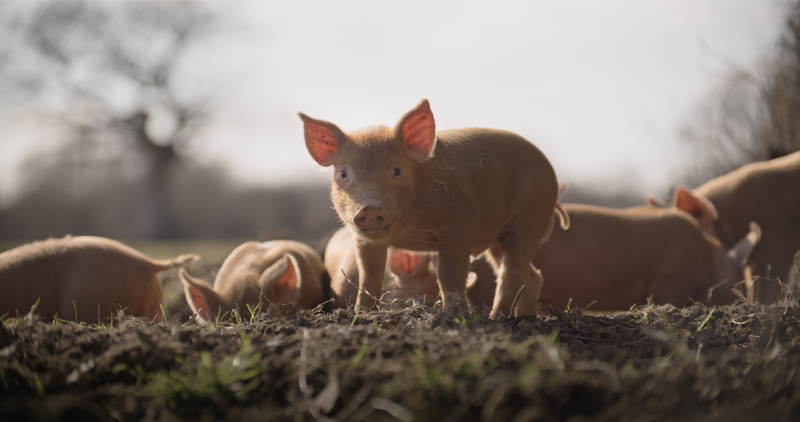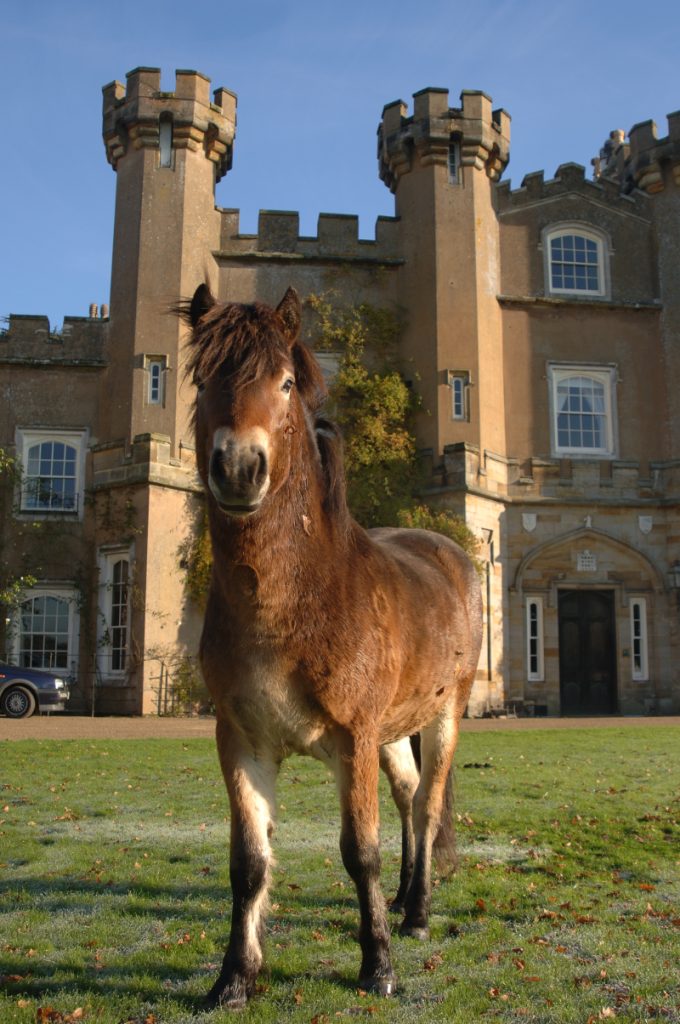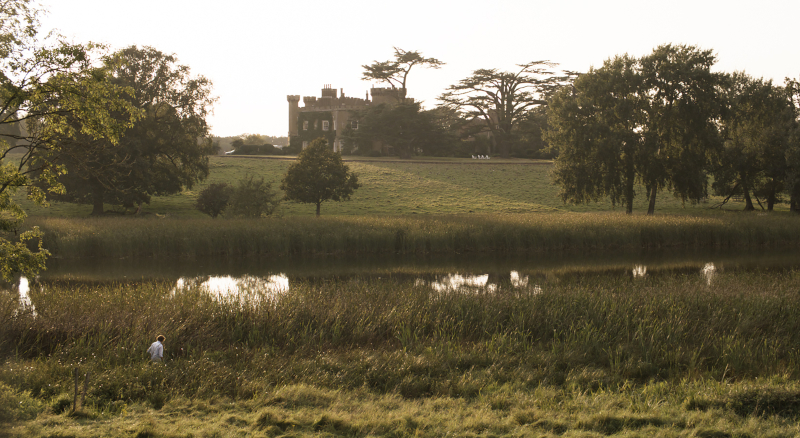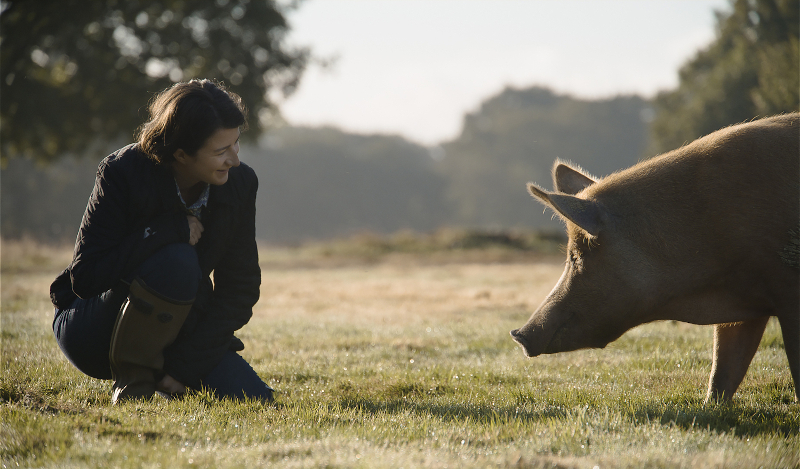Director – David Allen – 2023 – UK – Cert. PG – 75m
*****
How Isabella Tree and Charlie Burrell closed down their failing farm and instead let nature run wild to regenerate the land’s depleted biodiversity – inspiring documentary is out in UK cinemas on Friday, June 14th
Charlie Burrell and Isabella Tree (Lady Burrell) inherited the Knepp farm in West Sussex from his parents in the early 1980s. They kept it going for some 17 years. However, by the late 1990s, they were in debt to the tune of one and a half million pounds. Realising that agro-chemical pesticides and contemporary industrial farming practices were destroying the topsoil necessary for biodiversity and a healthy ecosystem, the couple then took the bold decision to stop farming and, with a little initial, minor tinkering, set about rewilding the land (i.e. letting nature take its course) and, hopefully, repair the damage done. They faced considerable opposition from the local farming community for the first five years or so. Then things began to happen which brought public opinion onto their side. In 2018, Isabella Tree wrote a book about the whole experience: Wilding: the return of nature to a British farm.
This documentary feature adaptation of Isabella’s eponymous 2018 book about their experience was shot during the pandemic and uses actors to portray the couple’s younger selves, so seamlessly cast that you actually don’t notice. Much of it follows either the interview model in which someone (in this instance, mostly the articulate Isabella Tree, herself an award-winning journalist and writer) tells their story to camera, or the natural history filmmaking model, where camerapeople capture things happening in real time in nature before the lens.

The film takes some bold and, as it happens, smart decisions about elements that, like the best special effects in movies, you don’t notice as special effects while you’re watching because they are doing their job so well. These include staging historical events with animal actors so that you feel like you’re seeing things as they happen (although you are actually watching a re-enactment) and employing expository computer animation to explain such concepts as topsoil and the interconnectedness of trees via mycorrhizal fungi as well as showing vistas of vast areas of the land viewed from above before and after rewilding.
We see the selling off the young couple’s farming equipment. The present-day Isabella talks of some of the early trials the couple faced after they introduced herds of both pigs and Exmoor ponies onto the estate. Left to their own devices, the pigs instinctively went rooting in the few parts of the estate where the topsoil hadn’t been damaged by intensive ploughing, digging up the grass on either side of the driveway in the search for nutrients. The pigs also started digging up the circular ornamental lawn in front of the house, and a particularly bold pony the couple had named Duncan joined in, which the couple felt was a bit too much and had to find ways to stop the pigs and Duncan in order to protect the circular lawn.

Duncan had a history of causing situations, at one point wandering into the estate office. On another occasion, when the trees were holding a fundraising polo drive, pigs broke into the food tent to snaffle some of the culinary delights on offer while Duncan raced around between the trained polo horses. These scenes are staged for the documentary using animal actors, but the effect for the viewer is as if you are watching news footage shot at the scene at the time. Which is something of an extraordinary achievement.
The cameras capture incredible scenes of a mother pig rooting through the ground near trees to build a nest for her young, tucking them in by adding leaves on top of the piglets. The pig sequences make for fascinating viewing compared to the very different pig documentary Gunda (Victor Kossakovsky, 2020), about a sow who is being farmed and wonders what has happened to her offspring. The pigs seen in Wilding have been introduced into an estate where there are allowed to roam free, so suffer no such human-inflicted trauma and, significantly, lead happier lives.
We watch Isabella rooting around in cowpats (the couple also have herds of wild cows on the estate), showing them teeming with the insect wildlife all too readily depleted by industrial ploughing.
The Knepp estate has attracted the largest concentration of songbirds in the country, a statistic aptly illustrated by footage of nightingales. Remarkably, the inaugural flight of the first white stork to be raised in the wild in the UK in 600 years is photographed as it takes off by a drone. The cameras follow a breeding turtle-dove, the bird at the top of the UK’s ‘most likely to become extinct’ list. They are also present to capture such events as beavers being introduced to Sussex for the first time in 400 years.

All this is a fascinating rebuff to 200 years of so-called agricultural progress, with its dependence on pesticides, in the course of which the UK has become one of the most depleted countries in the world in terms of environment, wildlife and biodiversity. If one had to sum up the story in one word, it would be: stewardship – the idea that we should take good care of the world around us and give it the space to replenish and regenerate, rather than assuming it to be an infinite resource and extracting as much as we can from it.
There seems to be a whole British film subgenre developing at the moment around farming and ecology. The documentary Six Feet Of Soil (Colin Ramsay, 2024) deals with a number of different farms in the UK going against standard industry practice to produce food to reconstitute rather than deplete the soil. Fashion Reimagined (Becky Hutner, 2022) follows a young designer who tries to set up a fashion house with a minimal carbon footprint. On the fictional narrative front, The Levelling (Hope Dickson Leach, 2016) is an intense family drama set on a Somerset farm. Boldly structured festival favourite (and – update – some months after this review a blink and you’ll miss it UK release) The Old Man and the Land (Nicholas Parish, 2023) concerns an old farmer whose farm may be about to be sold off as unsustainable by his children when he retires. And Then Come the Nightjars (Paul Robinson, 2023) deals with a farmer and a government inspector, two friends who clash over the implementation of destroying livestock during a foot and mouth outbreak.
The couple portrayed in Wilding were approached by over 70 filmmaking teams before setting on Allen, a good choice as he is clearly in sync with the subject matter. The brevity of the running length is deceptive in that Allen packs in a lot into a satisfying 75 minutes, so the audience never feels short-changed. The result is a genuinely inspiring documentary that’s well worth watching.
Wilding is out in cinemas in the UK on Friday, June 14th.
[Read my alternative review for Reform magazine.]
Trailer:
